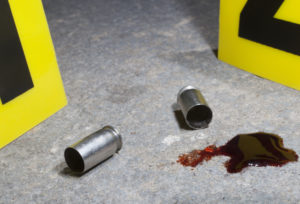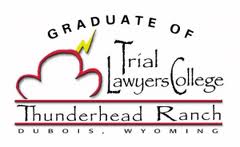 Crimes of Violence
Crimes of Violence
Houston Criminal Lawyer James Sullivan represents people charged with all kinds of criminal offenses, including murder.
Sullivan has tried five separate murder cases to a jury trial. In Harris County, the government usually makes a standard offer of 45 years on all of the cases despite the evidence or circumstances of the case. In 2013, Sullivan assisted his associate Nancy Botts in a murder case she was defending. The government made the usual offer that most people would refuse. The client had a decent self defense argument, however he and his girlfriend lied about the circumstances of the killing to the police. Ultimately, the jury did find him guilty, and the client received 16 years in prison.
Several years back, Sullivan defended a client who shot his best friend in the back after losing a fight with him. His client’s friend was running down the sidewalk away from him when he fired at his buttocks. Unfortunately, the bullet struck his friend in the lower back and severed an artery. The client called 911 on himself and waited at the scene until the police and ambulance arrived, however his friend bled to death on the sidewalk. The client thought he had a legitimate self defense claim, however he clearly knew nothing about the law. The government again made the standard offer of 45 years. Sullivan argued to the jury that his client acted in the heat of passion which would have reduced the punishment range from 5 years to life to 2 to 20 years in prison. The jury ultimately sentenced the client to 20 years in prison.
If you are accused of a crime of violence, contact James Sullivan at (281) 546-6428 for a confidential consultation. Sullivan gets proven results in misdemeanor and felony criminal and juvenile cases in Harris, Fort Bend and Montgomery counties. Sullivan graduated from Gerry Spence’s Trial Lawyers College.
Texas Penal Code, Section 19.02 – Murder
CHAPTER 19. CRIMINAL HOMICIDE
§ 19.02. MURDER. (a) In this section:
(1) “Adequate cause” means cause that would commonly produce a degree of anger, rage, resentment, or terror in a person of ordinary temper, sufficient to render the mind incapable of cool reflection.
(2) “Sudden passion” means passion directly caused by and arising out of provocation by the individual killed or another acting with the person killed which passion arises at the time of the offense and is not solely the result of former provocation.
(b) A person commits an offense if he:
(1) intentionally or knowingly causes the death of an individual;
(2) intends to cause serious bodily injury and commits an act clearly dangerous to human life that causes the death of an individual; or
(3) commits or attempts to commit a felony, other than manslaughter, and in the course of and in furtherance of the commission or attempt, or in immediate flight from the commission or attempt, he commits or attempts to commit an act clearly dangerous to human life that causes the death of an individual.
(c) Except as provided by Subsection (d), an offense under this section is a felony of the first degree.
(d) At the punishment stage of a trial, the defendant may raise the issue as to whether he caused the death under the immediate influence of sudden passion arising from an adequate cause. If the defendant proves the issue in the affirmative by a preponderance of the evidence, the offense is a felony of the second degree.

